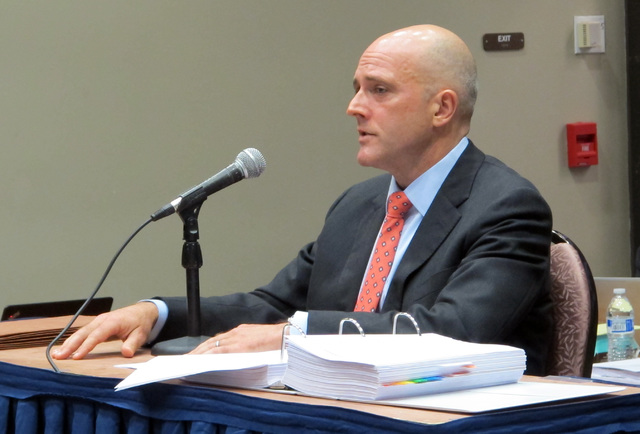HONOLULU (AP) — A deadline is looming in Hawaii over a proposal for Florida-based company NextEra to buy the state’s main utility, in a deal that questions the state’s ability to attract investment and to meet its aggressive renewable energy goals.
NextEra has proposed to buy Hawaiian Electric for $4.3 billion, and the sale was approved by Hawaiian Electric’s shareholders a year ago, but the state utility regulator hasn’t yet announced a decision. If a deal isn’t in place by Friday, NextEra has warned that it may walk away.
Local critics have questioned whether the deal would result in energy savings for consumers, who pay the highest rates in the nation. NextEra has promised $60 million in savings for customers, but the state consumer advocate Jeff Ono said that would amount to less than a dollar a month in customer savings, if that happens at all. The proposed savings come with conditions that allow the company to opt out if there’s a financial disaster spurred by something such as a hurricane, Ono said.
“I don’t think we can even really put a value on it, because they have so many off-ramps, trap doors, that would allow them to basically renege on any of those state credits that they’re offering up front,” Ono said. “If you read their conditions that are attached to that offer, they can almost at any point pull that money out … It should be unconditional.”
Both NextEra and Hawaiian Electric declined to comment.
Critics were concerned about losing local control of the utility. Gov. David Ige opposed the deal, saying he didn’t believe NextEra would be able to help Hawaii fulfill its goal that its utilities use 100 percent renewable energy by 2045. Right now, the state gets nearly a quarter of its energy from renewable sources, but the island state is heavily dependent on importing oil.
NextEra countered that it’s committed to helping Hawaii meet its renewable energy goals, touting its leadership in the area. In public hearings on the merger, NextEra Energy Hawaii President Eric Gleason estimated it would cost $30 billion to implement changes to meet the goal, a cost that would be borne by utilities, power producers, customers and other parties.
The Chamber of Commerce of Hawaii and other local business groups support the deal, saying NextEra will help Hawaii achieve its renewable energy goal.
“If this merger doesn’t go through, then we have to ask ourselves, ‘then who?’ Because obviously Hawaiian Electric alone cannot do it,” said Sherry Menor-McNamara, president and CEO of the Chamber of Commerce of Hawaii.
Some utility analysts say it would be unfortunate if the deal fizzled because NextEra has expertise with renewable energy. NextEra owns one of the country’s largest electrical utilities, Florida Power & Light Co., and a major wind and solar energy company.
“From the outside looking in, it’s a little bit confusing as to why there’s local opposition,” said Timothy Winter, vice president and utility analyst at Gabelli and Company, a New York-based financial services company. “NextEra is the biggest, best, longest operator of renewable wind and solar in the nation, if not the world, so the fact that NextEra’s coming in, it should help the process.”
Supporters of the sale are also concerned what the deal falling through would do to the state’s business climate, at a time when projects like the proposed $1.4 billion Thirty Meter Telescope faced major local opposition.
“How does that impact our business climate and the attractiveness of investments coming to Hawaii?” Menor-McNamara asked.









